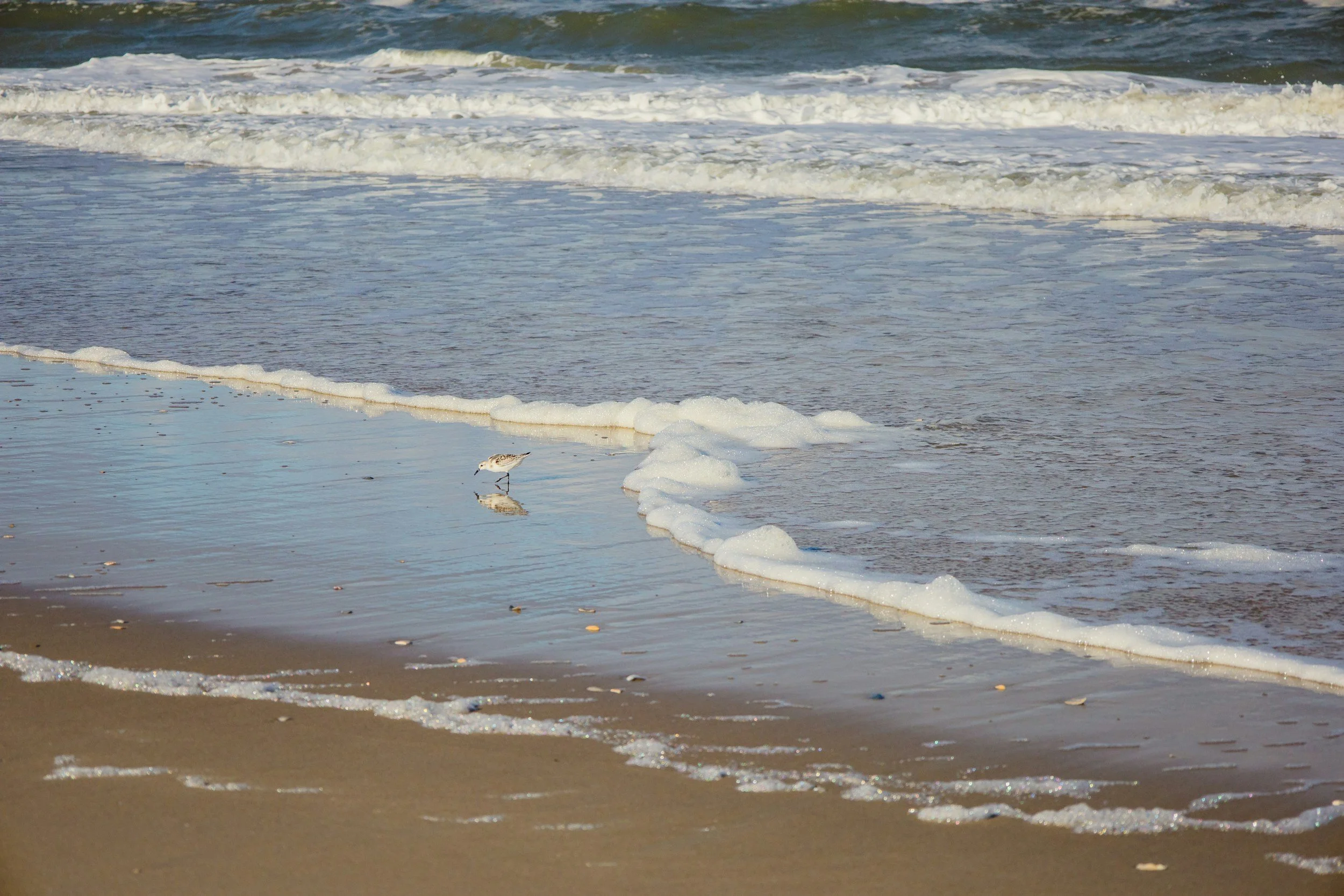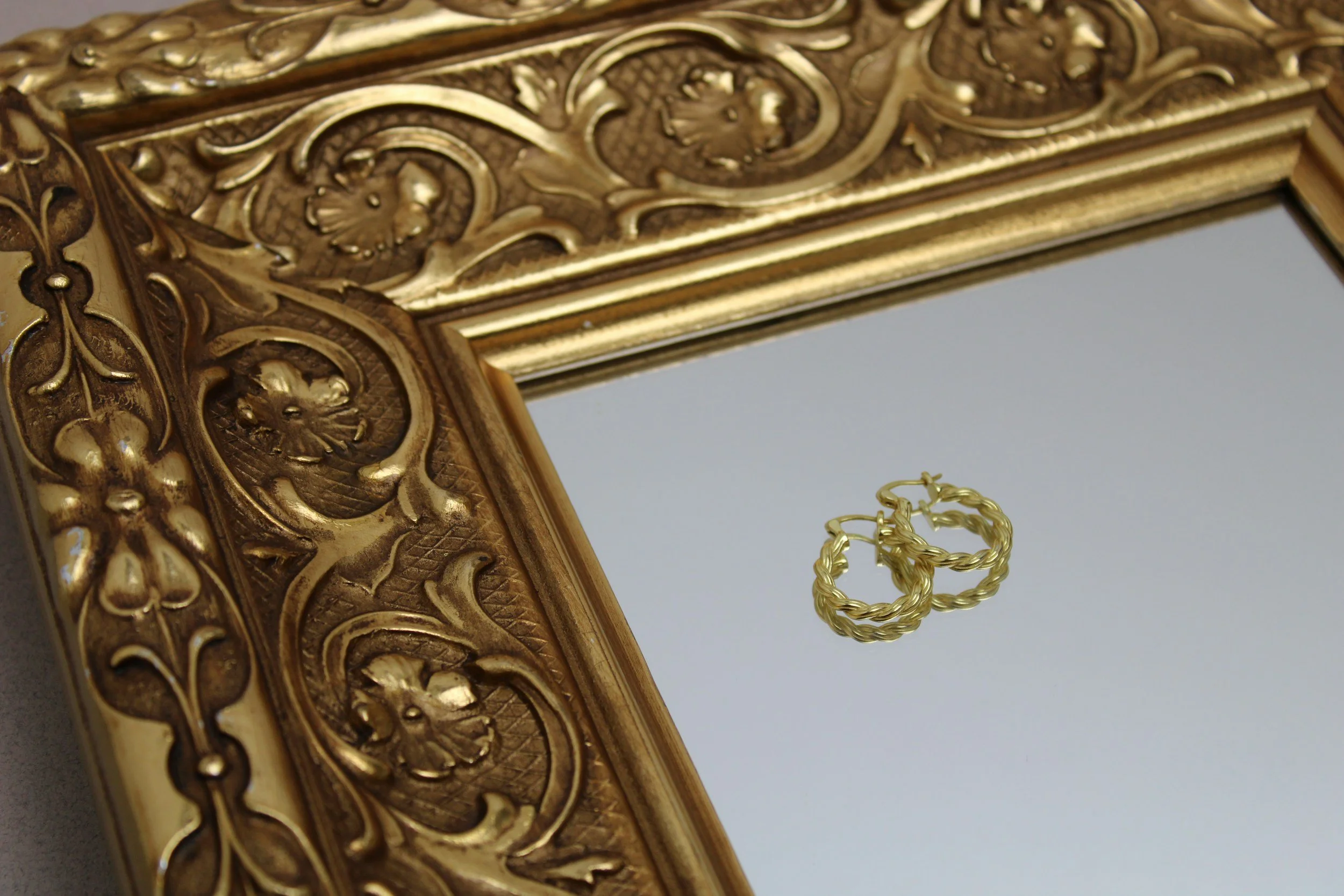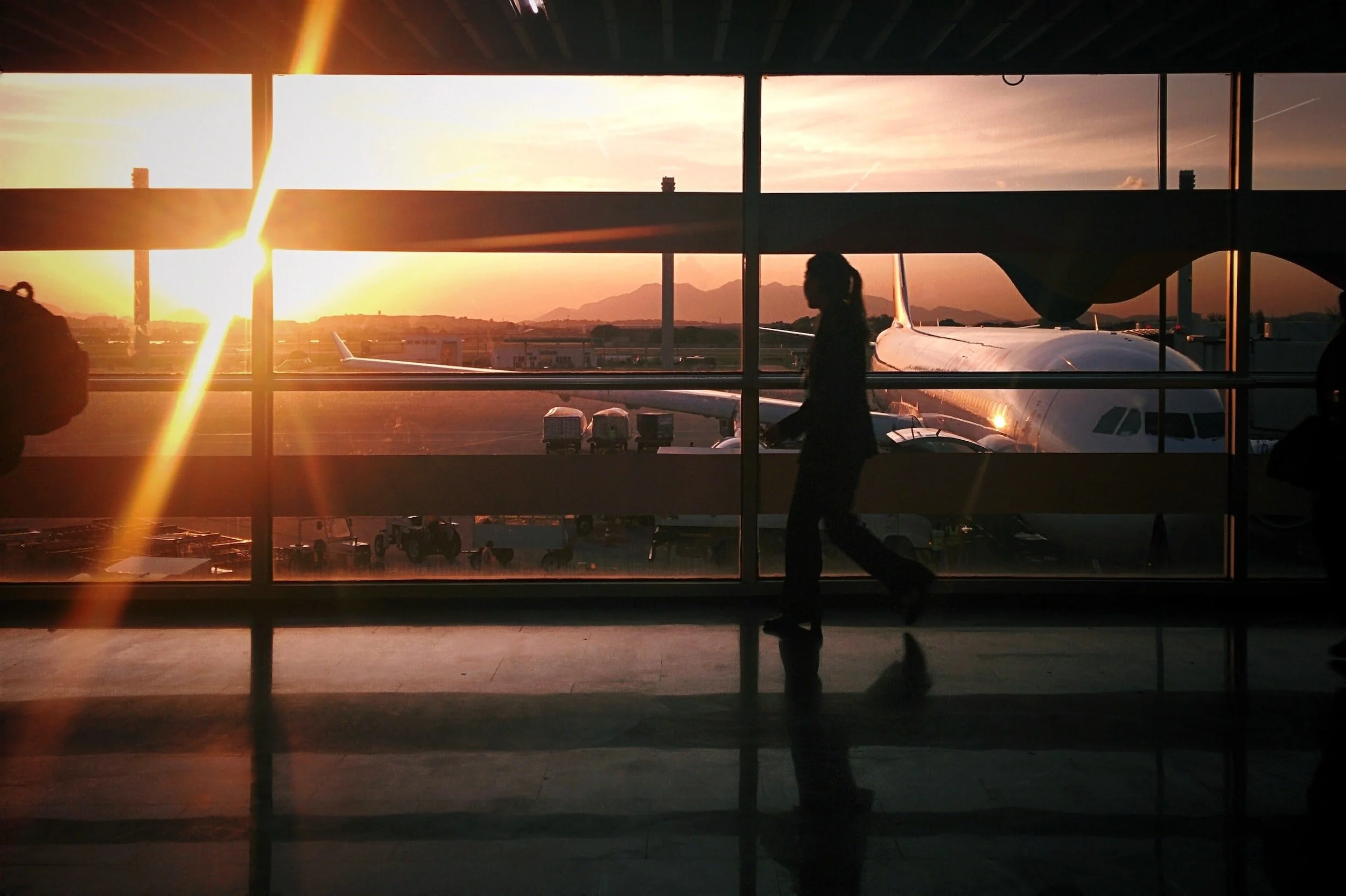Caution: Memories in the Mirror May Be Closer than They Appear
“Driving is a spectacular form of amnesia. Everything is to be discovered, everything to be obliterated.”
―Jean Baudrillard, America
The road unfolds in front of us, a black ribbon of tarmac glittering in the summer heat. It is one of many roads I have taken. The rearview mirror reflects the same view, a yellow dotted line that connects us to the next destination, and the previous. Were we ever there? Over a hill, the road disappears, and I wonder if we too will disappear as we follow it.
Another road, another time: Night has fallen as black as ever I’ve seen it. We’re in the middle of cornfields, trusting the highway continues under our wheels. No farmhouse winks at us from afar. No headlights blind us. Taillights turn onto the road ahead of us, red eyes blinking ominously in the distance, quickly swallowed by the pitch. If the road bends, will we know before we come face to face with disaster?
Another road, another night: We left New York after work, on a winter adventure to Virginia Beach. Snow enveloped us as we approached the Chesapeake Bay Bridge-Tunnel. At its highest, the twelve-mile trestle bridge sways forty feet above the swirling waters of the bay. Twice, it plunges below the water into one-mile-long tunnels that separate the trestles into three segments. Usually, this is the highlight of an otherwise boring drive. You can see for miles as you cross. Open the windows and catch the first breath of saltwater air. Feel the sand between your toes in anticipation.
But tonight, a glittering vortex of white sparkles comes at me as I search for the road, trying not to slip. Taillights guide me to the lane, of sorts, dug by the cars ahead of us. Headlights crawl past from the opposite direction, momentarily blinding me. I wobble on the tightrope between focus and not focusing too hard, afraid of snow blindness. Windshield wipers click-click, snow pings the car, and the wind howls. I think we must be holding our breath because as I inch along the narrow bridge, I can’t hear anything from within the car.
The first tunnel provides respite, a moment to blink my eyes and stretch my hands. Reemerging above ground, we plunge into a deeper dark, the snow falling heavier than before. Here the wheels meet slippery slush and the wind roars, pushing the car. I can’t see the bridge’s guardrails so I follow the red hazard lights crawling ahead of me, trying not to think about how cold the water below must be. Without a word, Kath turns our hazards on too and then holds my hand on the wheel for a split second. She reminds me to breathe.
The second tunnel, hidden by the blackness, takes me by surprise. We slide into its depth. I stretch my neck and look at Kath. Terror reflects back at me. Without a word, I turn the radio on, and we exit the tunnel for the last stretch of bridge. As we creep along, I can see, maybe, the blinking overhead lights that signal the end of the bridge-tunnel. The Honda Prelude finally arrives on terra firma, its passengers trembling but safe.
Leaving Las Vegas: The sunlight blinds as we leave the casino. They keep the daylight out so time becomes meaningless. We’ve finally escaped the maze of Caesar’s Palace and have put Vegas in our rearview mirror.
Newly minted PhDs, heady in our academic success, we are road-tripping with the ultimate tripper, Jean Baudrillard. (You thought I would say Kerouac. Sorry to disappoint.) His book open on my lap as Danielle drives, I twist to seek the vanishing point through the window. The tarmac spreads out behind me, suspending the reality of a suspended simulacrum, for what else could Las Vegas be to us?
94 West, Wilmette, Illinois: My speedometer climbs as I hit the accelerator just before the bend at Dundee. The morning rush traffic has spread out and I roll down the window to feel the crisp air. I marvel at the sky. It’s that special blue, the one you only see as summer greets fall with cool mornings and warm days. On WXRT Mary Dixon tells me, “We’ll have traffic, sports, and weather after this,” and cuts to a commercial. As I curve into the bend and smile at the one burst of fall color, my friend Mary comes back on air. She speaks words that we don’t yet know will change our world.
“A plane has flown into the World Trade Center in New York City.” And just like that, a blue September sky will never be the same.
Somewhere in New Mexico: The top is down. I’ve got a bandana over my head to keep my hair from blinding me. At the top of our lungs, Philippe and I sing along with the Styx CD we just bought at Walmart. The road cuts through the desert, sand, and mountains all around. Nothing has ever felt as beautiful.
95 South, 1980: We are a family caravan, taking my brother to college. My sister and I sit in the back seat of Mom’s Mercedes station wagon. Dad drives. Mom fiddles with the CB radio. Hal and his girlfriend are behind us, in a van borrowed from our neighbors. As we come through the tollbooth, a car ahead of us comes to a dead stop. The car just in front of us screeches to a halt and my dad has no option—we go crashing into it.
I look through the rear window, craning to see my brother. Can he escape the inevitable? In a glacial split-second the van pushes the station wagon, which folds like an accordion as it crunches further into the car we’ve hit. I brace for the shattering of the van’s windshield and harrowing thuds on our roof.
Suddenly the CB radio comes on at top volume, jolting me back from my slow-motion imagination. I’m shocked back into the car. Hal and Leslie remain safely seat-belted in the van. We are all intact. My whiplash turns up the next day.
We don’t speak of this accident for another four decades. I am surprised to learn that Hal thinks it was his fault.
Lake Shore Drive, mid-morning: Philippe and I head home after a staycation in the city. We’ll take Mom and the baby to brunch. We laugh, remembering our night. Ahead of us, the Sunday road is mostly empty. A light post leans, and then slowly but so swiftly crashes into the road. The car in front of us barely swerves out of its way. Its trunk is grazed as the light post bounces off it into the street. Philippe hits the brakes, hard. I look back, anticipating the crash of a car rear-ending us. But there is no other car on the road. The light pole stretches across two lanes of traffic, its dinosaur-sized head unseeing on the pavement. We inch around it, check on the other driver who is shaken but not injured. We call 9-1-1. He tells us not to wait, he’ll be okay. We continue on to Mom, baby, and brunch.
A different trip to Virginia Beach: I don’t remember much. I think it was a wood-panel station wagon. Always, Hal to my left, head against the window on a pillow if he was sleeping. Laurie to my right. Littlest in the middle. Destination: 61st Street, where my grandmother rented a summer house.
The drive transports me to a montage of crisp, nubby cotton bedspreads, crunchy crackers alongside endless games of Go Fish, a red and blue canvas raft, Dad’s shoulders keeping me safe above the waves, sand between my toes, mandatory rest after lunch, and lots of PB&J. Long walks after dinner and learning not to jump in a puddle if I couldn’t see its bottom. At our aunt’s pool, my sister tries to teach me to dive. She stands me on her knees and rides me around pretending I am water skiing. We learn to eat crabs with Uncle Sidney. One summer, Hal sports a cast that must be carefully protected against the ocean. Another summer, we wash and dry dishes, side-by-side, me in my baby doll pajamas, smiling as I stand on a stool to help. Perfumed by dune grass, sea salt, and Coppertone, Virginia Beach bursts with love.
Another highway, another strange occurrence: I’m seventeen and heading home from school, a new driver in my new car. I signal and turn right onto the highway ramp. As I come around the apostrophe curve, the car ahead of me pulls left to go around a car parked on the curb at the bottom. I slow down and check my ten and twelve hand position. Then I look to the dark Chevy Impala, to see the driver and know if they will move. There is no driver.
Suddenly the empty car’s red reverse lights shine and it begins to roll backward. There is nothing between us, so I stay to the left. But the Impala pulls left, setting a collision course with my Dodge Omni. I pull to the right, straining to see a driver and wondering how the car is moving. The car swerves right and picks up speed. I glance in the rearview and realize I can’t back up or I’ll hit the cars behind me. I freeze.
I’ve entered a time warp, a tunnel in which nothing exists but me and the driverless Chevy Impala. We’ve changed sides, and it cuts through time’s molasses for the driver’s side of my car. Metal upon metal scrapes as the rear fender makes contact. The car keeps going, sliding up and attaching to the side of my Dodge Omni and then dragging both of us across the road until the high curb stops time.
In a world before cell phones, I wait until another driver knocks on my passenger door, bringing me back to the speeding cars on the highway, the warm spring breeze, and the honking anger at the building traffic on the ramp. We wait for what seems forever as someone runs to call the police.
A large man lies passed out across the front seat of the Impala. The police suspect he tried to park the car before his heart attack, got only as far as reverse and then his foot slipped onto the accelerator. They tell me my car is drivable and send me home.
Highway 1, San Diego to San Francisco: Sea lions and tidepools. Legoland. Disney Land. Sand in our shoes. The best fish tacos ever. Harrowing hairpin turns and stunning views of the Pacific. Otters and zebras. The over-the-top house of the man who may have inspired Citizen Kane. Taylor Swift on repeat.
At each stop, we crouch to marvel at the creatures in the pools and photograph the moss and rocks that speak of fairies living near the sea. We plot the stories we will write about the little folk we imagine living there. I hold my daughter’s small hand as we dip our toes in the Pacific.
The road unfolds in front of us, a black ribbon of tarmac glittering in the summer heat. It disappears through the mountains. We will follow it to the end, passing zebras along the way.
-Ilene S. Goldman
Ilene S. Goldman writes, reads, gardens, and cooks in Evanston, Illinois. Her work has appeared in Grande Dame Literary Journal, The Girlfriend, ReformJudaism.org, and a host of academic journals.



















